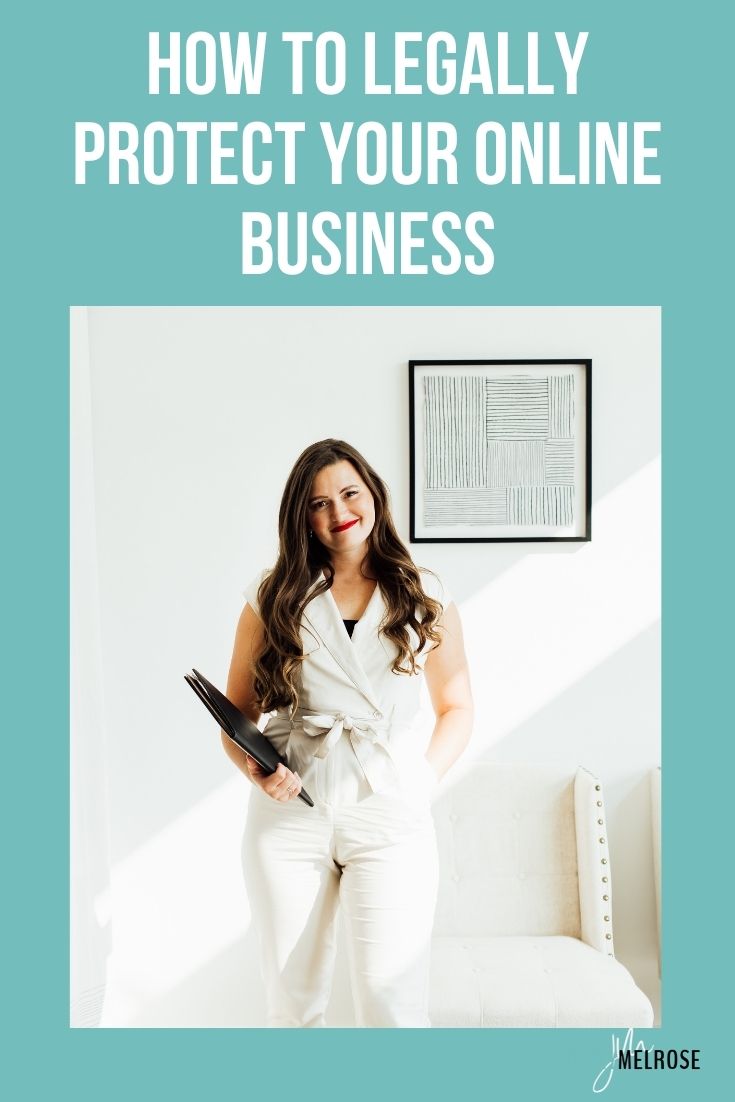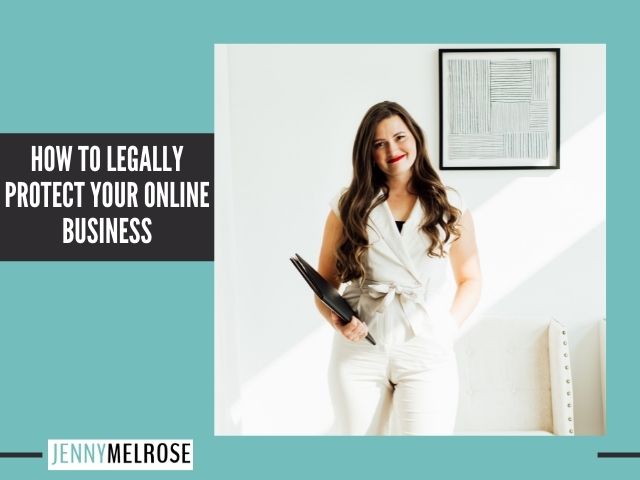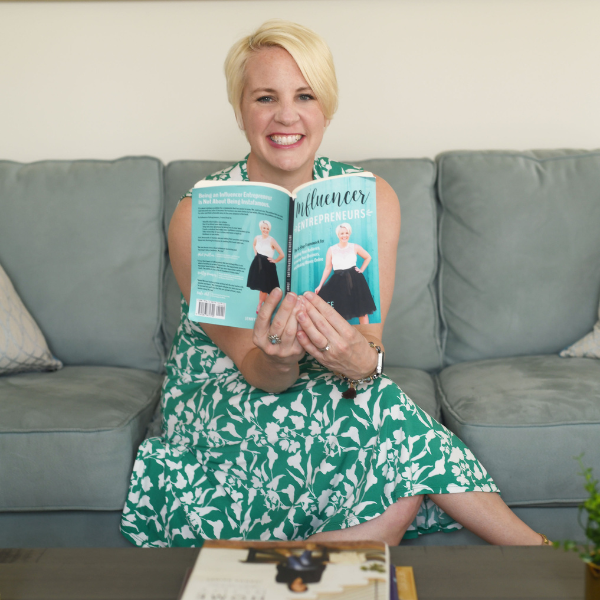On today’s episode we have special guest Brittany Ratelle talking to us about how we can legally protect our online business!
IE 285: How to Legally Protect Your Online Business with Brittany Ratelle

Brittany is an attorney that specializes in helping creators or creative entrepreneurs better understand the legal side of their businesses with done for you services and templates.
What are the key things we need in order to protect our websites?
The big things we’re looking for are that every website needs to have a privacy policy because it’s required by both state and federal law.
The next thing you need but is not required by law is to have website terms or website terms and conditions, which is also sometimes called terms of service.
Terms of service are going to govern your relationship with the users and visitors to your website.
Terms of service are necessary if you sell any products or services.
This is the document you want to serve up if you have any disputes over charges because the terms of service tells them this is what our deal was regarding this transaction.
The last thing needed is a copyright statement.
How do we legally protect a recipe?
There are some parts of it that you can protect and some that you can’t.
Copyright law is actually very specific in the U S and has said that a recipe, meaning the list of ingredients and the simple processes of assembling those ingredients, is typically not protected by copyright law because it’s considered too functional.
Copyright is supposed to protect the creative guts of content.
Consequently, content that comes before that recipe are protectable as well as the photos or video that may accompany that recipe.
As influencers should we have an influencer contract in place with a brand collaboration?
You absolutely should have a contract in place with a brand collaboration.
It’s important to redline your influencer contracts and make sure that there are not stipulations that don’t apply to the scope of your work.
For example, indemnifying is not something that an influencer needs to worry about and they should red line this from a contract.
You want a contract in place for clarity for both parties on what is expected of the influencer and brand.
Is there anything that you’re seeing in 2022 that is popping out from the contracts as far as like you should be charging more for this?
Advertising access or what is known as white listing is a very hot topic issue and often seen in influencer contracts.
With whitelisting you’re granting permission that someone can go on and basically turn on sponsored ads that will look like they’re from you and are promoting that brand.
if they want 30 days of ad access you should be charging for it.
Influencers should charge anywhere from half of the fee to double what the fee was for that 30 days of ad access.
Alternatively, influencers could also charge a percentage of ad spend.
You can say, I want a 3 or 4% of whatever the ad spend you’re going to put behind it because it could be affecting your audience, which will hurt your bottom line and you should get paid for that.
Brands are also referring to whitelisting in contracts as dark posting and is another red flag word that influencers should know and be on the lookout for in their contracts.
What contracts should we have with independent contractors like va’s?
As we’re building our businesses and teams, we should have va’s or independent contractors fill out a 1099 as well as an independent contractor agreement.
This agreement and why it’s important is because it’s going to outline your expectations.
It’s also going to clarify most importantly, that you are intending for them to be an independent contractor and not an employee, which is important for tax purposes.
The contact should also address intellectual property of the services provided as well as copyright.
The last thing that an agreement should contain is confidentiality because as we see our contractors getting younger and younger, we see them using social media to share everything about their work and life.
Therefore it’s important to outline confidentiality on pricing or growth strategies within the business.
Should we trademark our sites and if so when?
Trademark is the tool to protect any of our brand elements.
The first thing that is often trademarked is the website name or channel name.
This is especially true if it is a personal brand.
Online course names or memberships is also another asset that could be trademarked.
You have a step-by-step workbook that will help us get Legally Legit. Can you tell me more about it?
The legally legit workbook started as a simple checklist and it’s now a roadmap that you really need to do to get your small business protected.
The workbook does a deeper dive into the topics that we talked about today.
You can find Brittany on Instagram as well as find her quiz on what you need to do to get your business legally legit on her website.
Plus if you’re looking for her contract templates you can find those on the Creative Contract Shop.
Action Steps:
- If you liked this episode of Influencer Entrepreneurs, please subscribe and leave a fabulous review!
- Join the conversation on Instagram by tagging Jenny when you’re listening to the podcast. She’ll send you a personal message whenever you tag her.



